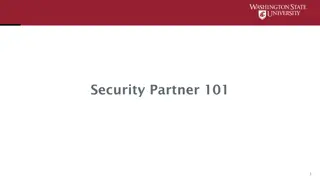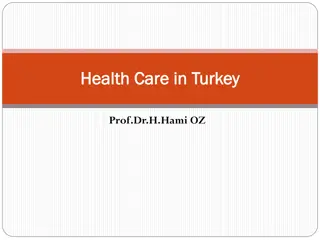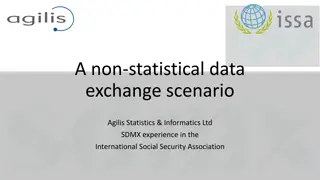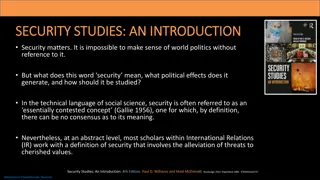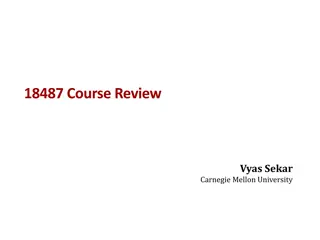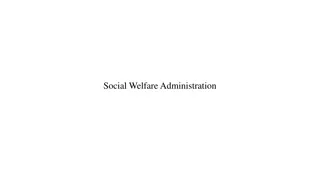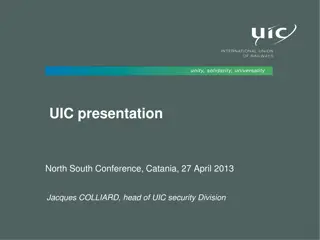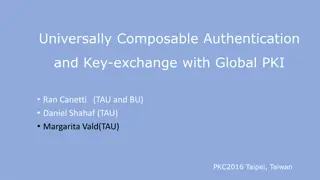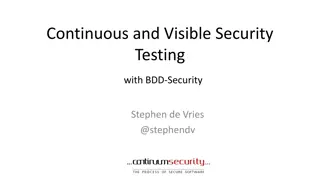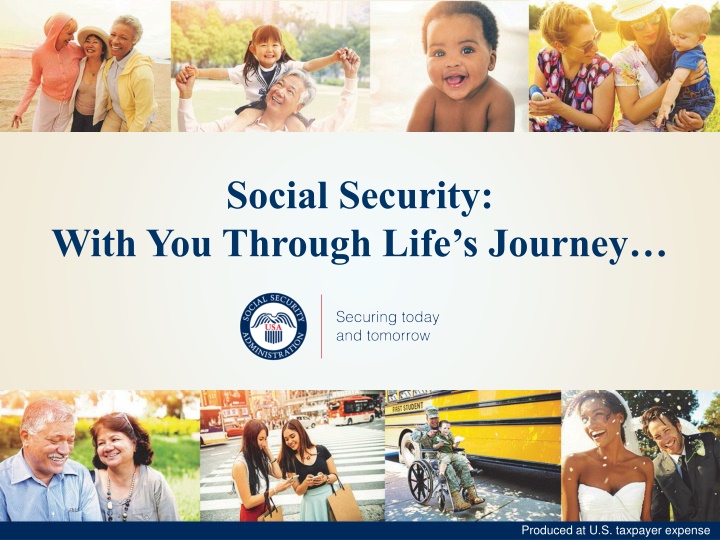
Supplemental Security Income (SSI) Benefits for Adults
Learn about the Supplemental Security Income (SSI) program that provides monthly payments to individuals with limited income and resources, including details on federal payment rates, resource limits, and eligibility criteria. Discover how SSI supports people who are elderly, blind, or living with disabilities in the United States.
Download Presentation

Please find below an Image/Link to download the presentation.
The content on the website is provided AS IS for your information and personal use only. It may not be sold, licensed, or shared on other websites without obtaining consent from the author. If you encounter any issues during the download, it is possible that the publisher has removed the file from their server.
You are allowed to download the files provided on this website for personal or commercial use, subject to the condition that they are used lawfully. All files are the property of their respective owners.
The content on the website is provided AS IS for your information and personal use only. It may not be sold, licensed, or shared on other websites without obtaining consent from the author.
E N D
Presentation Transcript
Social Security: With You Through Life s Journey SocialSecurity.gov Produced at U.S. taxpayer expense
Were With You If The Unexpected Happens SocialSecurity.gov
Disability Benefit Statistics As of December 2018, Social Security paid an average monthly disability benefit of $1,096.99 That s barely enough to keep a beneficiary above the poverty guidelines ($12,490 annually). According to the U.S. Census Bureau, 56.7 million people living in the United States - 19% of the population - live with a disability. 38.3 million people - 13% of the population - live with a severe disability. SocialSecurity.gov
SSDI vs. SSI Social Security Disability Insurance Payments come from the Social Security trust funds and are based on a person s earnings. Supplemental Security Income Payments come from the general treasury fund, NOT the Social Security trust funds. SSI payments are not based on a person s earnings. An insurance that workers earn by paying Social Security taxes on their wages. A needs-based public assistance program that does not require a person to have work history. Pays benefits to disabled individuals who are unable to work, regardless of their income and resources. Pays disabled individuals who are unable to work AND have limited income and resources. Benefits for workers and for adults disabled since childhood. Must meet insured status requirements. Benefits for children and adults in financial need. Must have limited income and limited resources. SocialSecurity.gov
Supplemental Security Income (SSI) What is it? SSI is a federal program that provides monthly payments to people who have limited income and few resources. Who is it for? People who are 65 or older, as well as for those of any age, including children, who are blind or who have disabilities. SocialSecurity.gov
SSI Federal Payment Rates Effective January 2019: Individual Couple $771/month $1,157/month SocialSecurity.gov
SSI Benefits for Adults Resource Limits $2,000 for individual $3,000 for couple Count the value of Bank accounts (CDs, IRAs) More than primary automobile Stocks and bonds, 401Ks Liquid assets Property except where you live SocialSecurity.gov
SSI Benefits for Adults Don t Count as Resources Home you live in Primary automobile Burial plots Certain resources set aside for personal burial expenses SocialSecurity.gov
Exclude Burial Items from SSI $1500 designated for Burial (must sign a form designating the funds) Burial space items including cemetary lot, markers, caskets, vault, headstones and other pre-paid items Some pre-paid burial contracts SocialSecurity.gov
ABLE Account Eligibility To be eligible, individuals must meet two requirements: 1. Age Requirement: Had an onset of disability prior to 26th birthday 2. Severity of Disability Determined to meet the disability requirements for Supplemental Security Income (SSI) or Social Security Disability Insurance (SSDI)and are receiving these benefits Or Obtained a disability certification, including a licensed physician s diagnosis, that the individual meets certain severity of disability criteria SocialSecurity.gov
ABLE and SSI The first 100,000 in an ABLE account does not count as a resource for SSI SSI monthly payments will be suspended if the beneficiary s ABLE account balance exceeds $100,000 by an amount that causes the recipient to exceed the SSI resource limit, but SSI eligibility will not be terminated. Social Security counts housing expenses as a resource if they are distributed in one month and held until the following month. SocialSecurity.gov
Using ABLE Account Funds Distributions from an ABLE account may be made for Qualified Disability Expenses. These distributions do not count as income. If they are spent in the month received, there is no effect on SSI eligibility. Qualified disability expenses: Relate to the designated beneficiary s blindness or disability Are for the benefit of that designated beneficiary Must relate to maintaining or improving his or her health, independence, or quality of life SocialSecurity.gov
SSI Trust Determinations Social Security must make a Trust Determination (some Trusts require a precedent such as a pooled trust) We have different rules for Trusts established before 1/1/2000 and Trusts established after that date. Process: 1. Claims Specialist makes initial determination 2. Submit determination to Regional Trust Reviewer 3. If they disagree on the determination it goes to a Regional Trust Leads Person to make a determination 4. Some Trusts may need a legal opinion from our Regional Chief Counsel SocialSecurity.gov
To make a determination we need the following information: A copy of the trust document; Copies of any signed documents between organizations making payments to the individual and the individual legally entitled to such payments, if the payments have been assigned, either revocably or irrevocably, to the trust or trustee; Source of assets funding the trust; Records of any payments or disbursements (such as ledgers and bank statements) from the trust, as necessary; and Any other pertinent documents, such as court documents. SocialSecurity.gov
www.ssa.gov/ssi/links-to-spotlights.htm#links SocialSecurity.gov
Q&A session Patty Hoffman and Jamie Jacobson Social Security Administration 4207 Boulder Ridge Road Bismarck ND 58503 877-319-6044 SocialSecurity.gov







